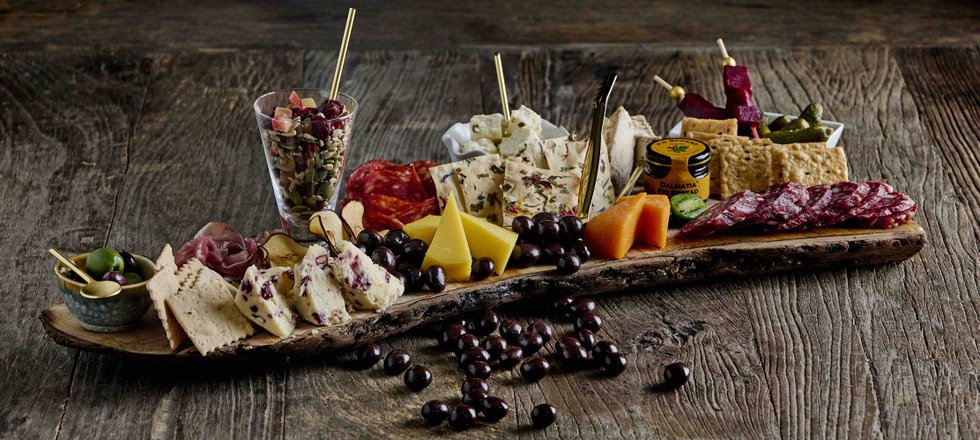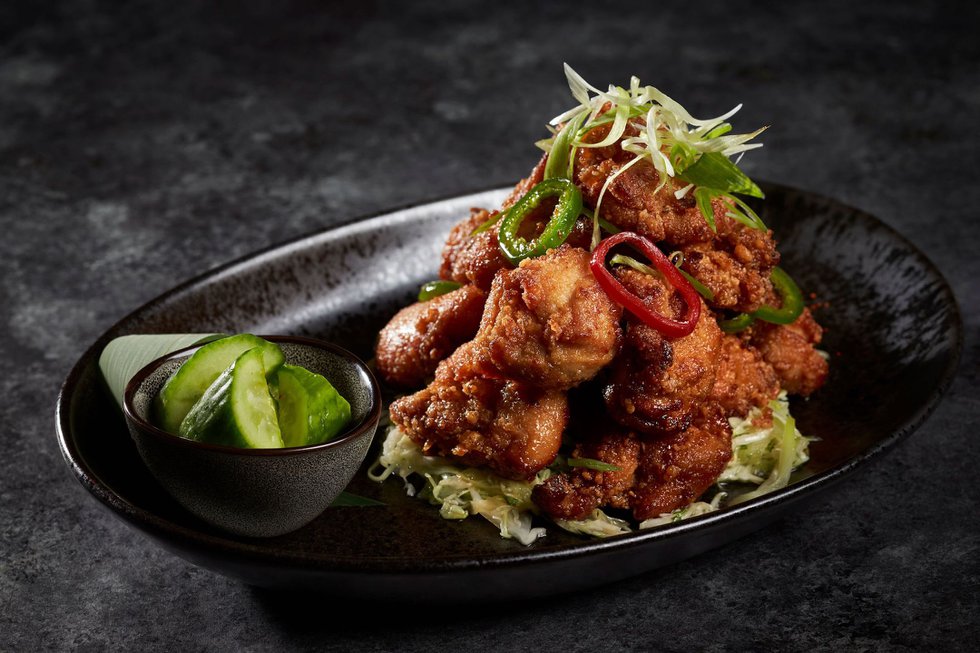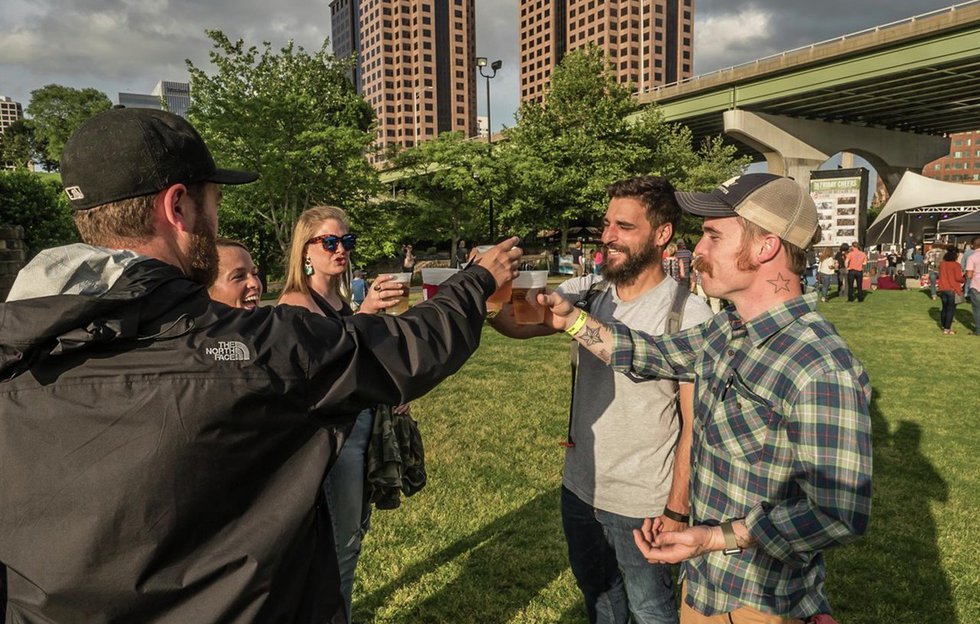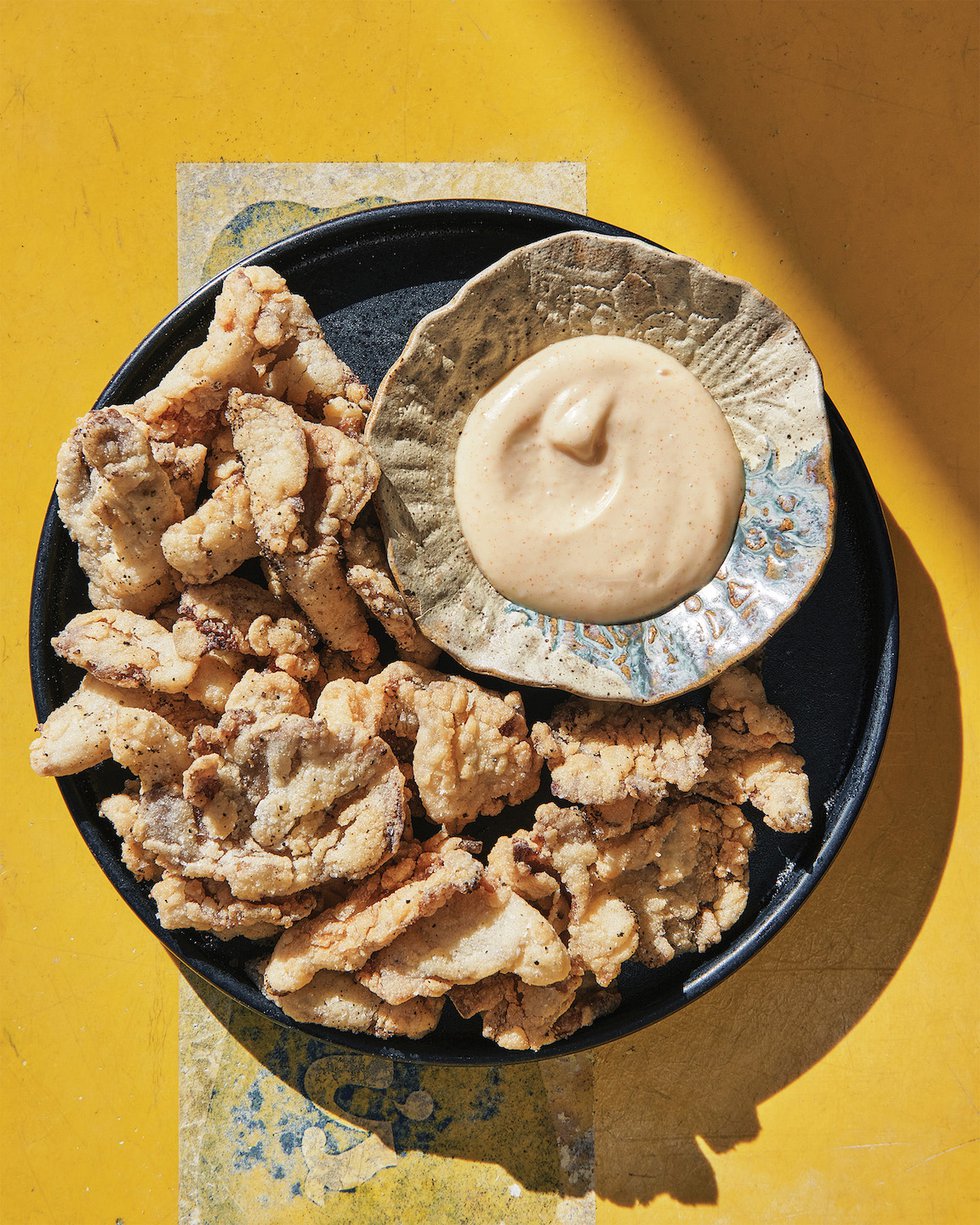With a twinkle in her eye and a wide smile, Ann Butler keeps busy teaching the next generation about food—how to have a healthy relationship with what goes on their table and into their communities, but also important life skills rooted in food.
But she’s added more to her plate.
This Richmond-based food educator’s latest venture is 21 Spoons, an eclectic and homey southside RVA restaurant with a mission to educate its patrons about eating local. For more than 20 years, Butler has been in culinary arts, and for the last decade, she’s lived out the educational mission of farm-to-table movement pioneer, Alice Waters, teaching more than 60,000 students through her Edible Education programs.
The minute the door opens, a visit to 21 Spoons feels like being welcomed to a neighbor’s dinner party. From the friendly greeting to the boisterous and lively clientele, the atmosphere is convivial and warm. Several birthday parties and a retirement soiree were underway when we visited for dinner, and neighbors from adjoining tables happily chatted and laughed throughout the various courses of their meal.

The décor is an eclectic blend of cheerful art, fresh flowers, and umbrellas cleverly hanging from the ceiling. Creative cocktails arrive on festive napkins, amplifying the friendly vibe. The servers bring a bit of the classroom into each conversation, educating diners about where ingredients are sourced and how various dishes are prepared. Menus are seasonally and locally focused, with many of the ingredients sourced from The Center for Rural Culture’s Fall Line Farms and Local Roots, a nonprofit online farmers market.
We shared a beautifully prepared charcuterie board that featured several cured meats from Virginia, including a Richmond-based salami from Olli Salumeri and ham from Amelia County’s Tuscan-inspired Terra di Siena. Our cheese selection included Mountaineer from Meadow Creek Dairy in Galax, as well as a goat cheese mixed with local herbs. Artichokes, fig jam, dried fruits, olives, and a selection of gluten-free crackers added visual appeal.
The spring salad featured a delicious mélange of Manakintowne greens, shaved radishes, farro, and avocado dressed with a hibiscus vinaigrette. Multiple vegetarian main dishes are on the menu: the eggplant rollatini is shareable, with ribbons of eggplant stuffed with saffron risotto and served with a Parmesan-crusted tofu. Salmon was served with wild rice, black-eyed peas, and sun-dried tomatoes with Liberty Farms tatsoi (mustard greens) and a grapefruit beurre blanc.

Other entrées included bacon-wrapped duck breast, grilled mojo pork, oven-roasted chicken, and pasta with shrimp, local mushrooms, asparagus, and a pea shoot pesto. For dessert, we chose a strawberry shortcake with fresh Agriberry strawberries from just up the road in Hanover. Topped with strawberry whipped cream, it was utterly decadent. For good measure, we also ordered a slice of gluten-free quinoa chocolate cake with blood orange coulis. Both were delectable ways to end our meal.
The drink menu featured several Virginia wines and spirits, including Copper Fox Whiskey. I sampled it in an amaro and Angostura bitters cocktail called Friendship, a fitting name for our congenial dining experience. In fact, a recent reader’s poll in Southern Living touted 21 Spoons as one of Virginia’s best.
With a loyal following and support of the local producer community, Ann Butler is onto something. The restaurant is open only on the weekends, giving her the opportunity to spread her wings, while continuing to teach kids and promote healthy living and healthy eating.
“This is my fun time,” says Butler, who flashes her signature smile when she talks about her newest venture. “At 21 Spoons, I get to talk to folks and promote all the great farmers and producers whose products we serve.” And lucky for us, we get to be guests at her dinner party and learn about the food we’re eating along the way. 21SpoonsMidlo.com
John Haddad has written about food and travel for more than 20 years. He founded Slow Food RVA in Richmond and is the Slow Food Governor of Virginia.
The CDC says that kids who get 50 hours of food education before they turn 12 have a different perspective on food, a healthier relationship with it, and better dietary habits than those who don’t get the same instruction. Food is the name of the game in Ann Butler’s Edible Education enterprise, which teaches kids about being healthy by bringing the fruits, veggies, grains, and ingredients to them so they can learn about healthy eating and practice healthy cooking.
The classes are offered through an affiliate program at schools and community centers throughout the Commonwealth, as well via birthday parties, camps, and other private events through Butler’s organization. She brings the kitchen to the kids and offers cooking instruction that not only gives them practical culinary skills, but gets them excited about eating healthy.
“I truly believe that kids will be the changing factor of families eating home-cooked meals together again,” says Butler. “Kids love the process—the cutting, smelling, cooking—possibly more than the end product, but the exposure is priceless.” According to Butler, people often fail to teach their kids about food, which can result in unhealthy consequences—earlier onset diabetes, earlier heart plaque build-up. She says that, incredibly, we’re looking at the birth of the first generation who won’t outlive their parents. “Grim and true,” she says.
Through the program, parents will be armed with kid-friendly recipes that their child can make at home, like “Mac ‘n’ Trees” with a cauliflower bechamel or a breakfast burrito that kids can build themselves. Edible Education recipes are designed to appeal to kids and to get them excited about healthy options—whether snacking on their own or preparing meals later on in life. There’s also a Edible Education YouTube channel, where parents and kids can learn from Butler herself and her make apple parfaits and veggie quesadillas, and learn an introduction to making pasta from scratch.
There’s also Butler’s “Kitchen a la Cart” which, as the name suggests, is a kitchen cart that contains all the culinary tools necessary for children to learn cook on their own. The interactive and mobile kitchen kits are probably as advanced as any adult-sized in-home kitchen and include an oven, a range, cooking tools like pots and pans, and appropriately-scaled recipe cards that show the importance of teamwork, sequencing, and smart food choices. Targeted at schools and educators, the mobile kitchens are designed to make cooking more accessible to smaller hands and bodies so kids can gain confidence in the kitchen. They come with small wares, like scaled-down measuring cups and tongs.
Butler says that there’s one last reason why families should learn about food together and try to cook together as much as possible: “Honestly,” she says, “I believe that the world’s problems can be solved at the dinner table.” EdibleEdu.com
—by Meredith Lindemon

Gluten-free Chocolate Quinoa Cake
2 cups quinoa, cooked according to package directions, then cooled and fluffed
3 eggs
1/3 cup coconut milk
1 teaspoon vanilla
1/2 cup olive oil
1 ½ cup sugar
1 cup cocoa powder
1 ½ teaspoon baking powder
½ teaspoon baking soda
½ teaspoon salt
Preheat oven to 350°F. Combine quinoa, eggs, milk, vanilla, olive oil, sugar, and cocoa powder in a blender and puree. Transfer to a mixing bowl and add baking powder, baking soda, and salt. Pour into a cupcake tin, tart pan, or round cake pan that has been buttered and sprinkled with cocoa powder. Bake for 20–35 minutes depending on the pan. Top with whipped cream or buttercream icing if desired.
Makes one 8-inch round; 8 servings.

Braised Short Ribs with Mash
2 lbs. short ribs
1 yellow onion, diced
3 carrots, peeled and diced
1 tablespoon tomato paste
4 cups beef broth
2 cups red wine
Sprig of fresh rosemary
2 bay leaves
1 small bag colorful, small carrots
Fresh microgreens/herbs for garnish
Preheat oven to 350°F. In a heavy-duty cast iron skillet or Dutch oven, sear short ribs until a brown crust forms on both sides.Remove short ribs from the skillet and set aside. Add onions and carrots to the skillet, stirring and sautéeing them until they are well mixed and coated. Add tomato paste and beef broth, stir, and deglaze the pan with the beef broth for 1 minute. Add the red wine and bring to a boil. Then add short ribs, rosemary, and bay leaves. Coat short ribs with the broth mixture. Bake at 350°F for 2 ½ hours.
Once cooked, remove the short ribs and set aside. Discard the bay leaves and rosemary. To make an amazing finishing sauce, use a countertop or immersion blender to puree the veggies and broth mixture.
Mash
8 cups water
3 Russet potatoes (or 6 parsnips), peeled
1 stick butter
2 cups heavy cream
Salt
Bring about 8 cups of water to a boil in a large stock pot or saucepan. Add potatoes/parsnips, and boil for about 45 minutes or until they are fork-tender. In a separate small saucepan, melt the stick of butter. Add heavy cream and a pinch of salt.Mash potatoes or parsnips with a potato masher and slowly add the butter and cream mixture until you reach the desired consistency. To serve: Spread mash on a plate, top with short ribs and plenty of finishing sauce. Garnish with microgreens or fresh herbs.
Serves 4.









